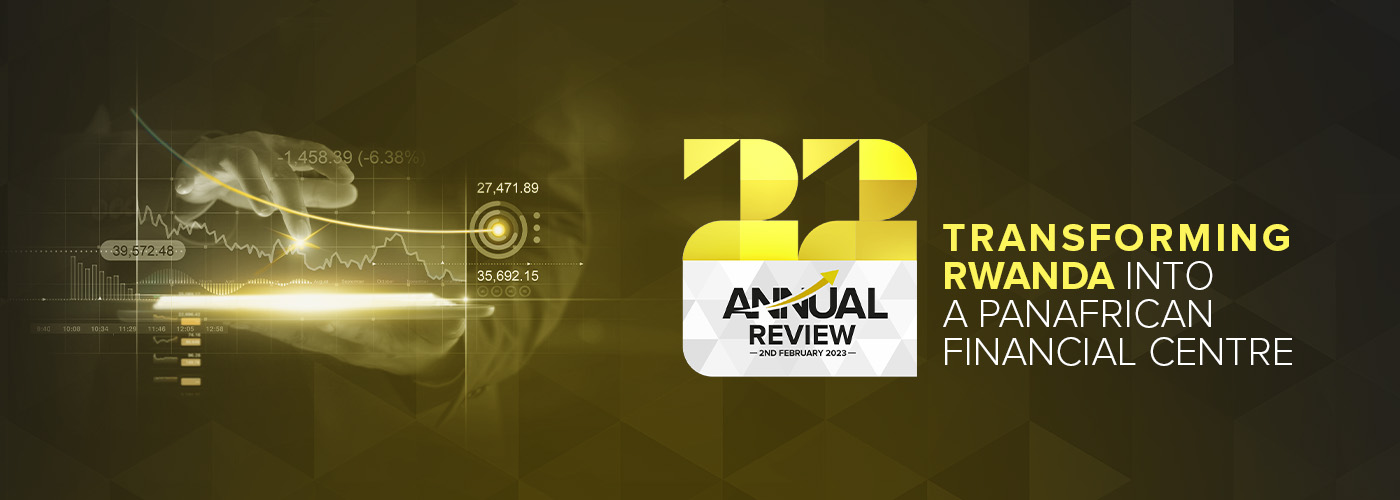Investment Funds
KIFC enables the structuring and domiciliation of investment funds, including alternative investment vehicles such as private equity funds to catalyze Rwandan and African economic growth.


KIFC enables the structuring and domiciliation of investment funds, including alternative investment vehicles such as private equity funds to catalyze Rwandan and African economic growth.
KIFC enables establishment of companies that only own assets or subsidiaries and are not involved in any other commercial activities.
KIFC enables and facilitates the creation and establishment of legal entities created by other existing entities with their own balance sheet, and with specific objectives.
KIFC facilitates the establishment of commercial entities making deposits in financial entities in Rwanda to finance their trading activities outside Rwanda and are not authorized to import or export goods in Rwanda.
Through KIFC, foundations are facilitated in setting up under the provision of the foundation law.
Under the insurance law, insurance companies are facilitated in setting up through KIFC, and the uniqueness of this law is that captive insurance schemes are also facilitated to be established.
Through KIFC, entities with 2 or more partners carrying on a business in common with a view to making a profit under a partnership agreement are facilitated in setting up.
Under the provision of the Trust law, KIFC facilitates the establishment of trust properties, rights, powers, interests, relationships, and duties under a trust as well as natural people or corporations licensed by a competent authority to act as professional trustees.

#IFF2026 Call to action ahead of the Forum.
Kigali International Financial Centre February 23, 2026 3:35 pm
Inclusive Fintech Forum 2026
Kigali International Financial Centre February 23, 2026 3:24 pm
KIFC’s 5th Anniversary highlights
Kigali International Financial Centre December 15, 2025 8:26 am
Rwanda Finance Limited (RFL) is a company promoting and developing Rwanda as a leading financial destination for
international investment and cross-border transactions in Africa.
Kigali International Financial Centre is an ecosystem of financial actors that will transform Rwanda into an international
financial destination for investors seeking opportunities across the African continent.
Rwanda Finance Limited (RFL) and Rwanda Development Board (RDB) are very complementary. Rwanda Finance Limited key mandate is to promote and develop Rwanda as a leading financial destination for international investment and cross-border transactions in Africa, whereas Rwanda Development Board is contributing to making Rwanda very attractive for investments but also marketing investment opportunities in Rwanda more generally in all sectors.
What Rwanda is doing is developing an international financial centre with a clear proposition to investors: direct access to multiple African markets and a centralized, holding presence for investors to locate all their financial activities across Africa, within a safe, fully compliant, transparent environment underpinned by the rule of law and serviced by Rwanda’s fast growing, high quality financial services industry.
Under the Investment Promotion and Facilitation Law number 006/2021 dated 5 February 2021, KIFC Members have been granted tax incentives.
The common theme for KIFC incentives is that for investors to access them, they have to fulfill both minimum economic substance requirements and also demonstrate that management and control resides in Rwanda. The new positioning of Rwanda at regional and Pan African levels requires Rwanda to comply with international standards from the EU and OECD, in particular the assessments of preferential tax regimes conducted by the Forum on Harmful Tax Practices (FHTP), comprising more than 130 member jurisdictions of the Inclusive Framework.
In line with the new compliance standards on harmful tax activities, Rwanda’s new investment law has been designed with the following key principles and objectives:
For an investor to qualify for certain incentives under KIFC, they must demonstrate minimum economic substance and also show that the governance, management and control of the investment resides in Rwanda. Regarding management and control, for example, investors will need to demonstrate that:
KIFC is intended to position Rwanda as a preferred financial jurisdiction for investments into Africa, as well as reforming the domestic industry. KIFC is the first of its kind in Africa, in that it is not offering a building, an economic free zone or a specific category of company registration.
Instead, KIFC provides a conducive ecosystem for financial hub actors to operate and invest in Rwanda as a gateway to the rest of Africa. KIFC’s legal framework is intended to nurture domestic and foreign talent, support leading technologies that drive value and inspire trust amongst investors, regulators and other stakeholders.
Investors under the KIFC are granted a preferential corporate income rate and exemption from withholding tax on dividends, interest and royalty payments. Refer to the Investment Promotion and Facilitation Law for the detailed KIFC investments package. The law also details the economic substance requirements to qualify for these incentives.
Disclaimer:
The information provided herein does not constitute legal advice. You should refrain from acting solely upon the information provided without first seeking legal or other professional advice.